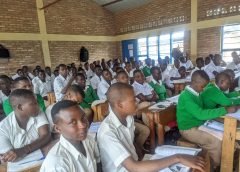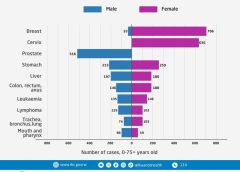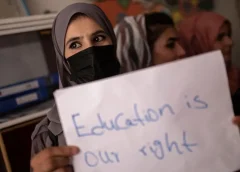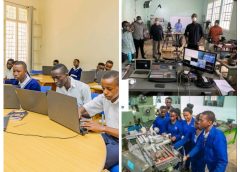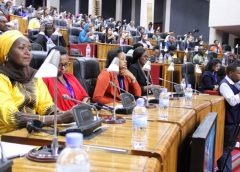Iyo unyarukiye mu bigo by’amashuri bya leta hirya no hino mu Rwanda, usanga abanyeshuri barenga 100 mu ishuri rimwe, umubare ukubye kabiri uwo amabwiriza agena. Ni mu gihe mu mashuri yigenga yo hafi aho usanga ihame ari ukutarenza abanyeshuri 30 mu cyumba. Ubwo bucucike bukomeje gutiza umurindi ubusumbane mu burezi mu Rwanda. Minisiteri y’Uburezi (MINEDUC) itangaza ko amabwiriza agena ko nibura icyumba kimwe cy’ishuri kigenewe abana 46, nyamara ubucucike busa nk’ubwashinze imizi mu burezi bw’u Rwanda, dore ko na raporo y’umugenzuzi w’imari ya Leta mu mwaka wa 2022 yagaragaje ko…
SOMA INKURUCategory: Inkuru zicukumbuye
E-Mobility in Rwanda: A dream for secondary cities amid infrastructure challenges
By Diane NIKUZE NKUSI Rwanda is aggressively pushing for e-mobility to combat rising air pollution and safeguard public health. With vehicle numbers increasing by nearly 12% annually and emissions emerging as a primary urban pollutant, the government has set ambitious targets for a cleaner future. The plan involves converting 30% of motorcycles, 8% of cars, 20% of buses, and 25% of mini-buses to electric by 2030 a transition estimated to cost around $900 million. The initiative is expected to yield significant reductions in greenhouse gas emissions, with projections suggesting reductions…
SOMA INKURUThe Alarming Rise of Cervical Cancer in Rwanda: Causes, Impact, and Prevention Measures
In recent years, Rwanda has witnessed a troubling increase in cervical cancer cases, a condition that has become one of the leading causes of cancer related deaths among women. Despite advancements in healthcare, the rising number of cases has sparked concern across the country, urging authorities, healthcare professionals and the public to take urgent action. This article delves into the causes behind the increase in cervical cancer in Rwanda, explores its impact on women and their families, and discusses what can be done to prevent the disease. Through personal testimonies,…
SOMA INKURUHasohotse raporo igaragaza igurishwa ry’abimukira
Raporo yakozwe n’abashakashatsi batandukanye yagaragaje ko Tunisia yirukanye abimukira, ikabagurisha kuri Libiya. Nk’uko byasobanuriwe Inteko Ishinga Amategeko y’u Burayi ku nshuro ya mbere tariki 29 Mutarama 2025, ibikubiye muri iyo raporo ngo bikaba bishimangira ikibazo ibyo bihugu byombi bifite. Muri ibyo bibazo hakubiyemo ibijyanye no guhungabanya uburenganzira bw’abimukira, cyane cyane abaturuka muri Afurika yo munsi y’Ubutayu bwa Sahara. Iyo raporo yakozwe n’itsinda ry’abashakashatsi, yashyizwe no ku rubuga rwa X, yanditse mu rurimi rw’Icyongereza, abo bashakashatsi bakaba barashyigikiwe n’Abadepite benshi bo muri Nteko Ishinga Amategeko yo mu Burayi, aho bemeza ko…
SOMA INKURUThe struggle for education among Afghan women and girls in a time of crisis
In the heart of Kabul, beneath the oppressive weight of Taliban rule, lies an unseen battle one that plays out in quiet classrooms, hidden study sessions, and in the whispered defiance of young girls and women who refuse to give up their right to an education. This is a fight not just for knowledge, but also for survival, dignity, and the future of an entire generation. The Promise Broken In August 2021, the Taliban returned to power, swiftly dismantling years of progress for women and girls in Afghanistan. One of…
SOMA INKURUThe impact of domestic violence on the mental health of children who are its victims
Domestic violence is often viewed through the lens of its impact on the immediate victims typically women and men who suffer physical and emotional abuse. However, the profound effect of domestic violence on children living in abusive homes is frequently overlooked. These children not only witness trauma, but they also experience deep psychological, emotional, and social consequences that can haunt them well into adulthood. The hidden victims: Children of abusers Domestic violence doesn’t only harm the person being physically attacked; it wreaks havoc on the entire family dynamic, with children…
SOMA INKURUThe Hidden Wounds of War: Investigating Sexual Abuse in Sudan’s Ongoing Conflict
As Sudan remains embroiled in a devastating civil conflict, stories of atrocities continue to emerge. Among the most harrowing are accounts of widespread sexual violence, a weapon often wielded in war to devastate communities. Victims, primarily women and children, face physical and psychological trauma, yet these crimes frequently go unpunished. This investigative piece seeks to uncover the scale of sexual abuse during the war in Sudan, spotlight survivors’ voices, and hold perpetrators accountable. The Scale of the Crisis Statistics: Although comprehensive data is scarce due to the chaos of war,…
SOMA INKURURwanda at 30: The evolution of education
Following the devastating aftermath of the 1994 Genocide against the Tutsi, the education sector, like other sectors, was left in ruins where many teachers were killed, or fled due to genocide crimes, and education infrastructure was destroyed. Despite this, the government demonstrated a strong commitment to education reconstruction, and three decades on, Rwanda has made significant strides in revamping its education system. Over the years, Rwanda has experienced an increase in foreign students from nations such as Chad, Ghana, Nigeria, Haiti, and neighbouring countries like Tanzania, Uganda, and Kenya. The…
SOMA INKURUThe Benefits of Gender Balance in Rwandan Governance: Insights from Research and Experts
In Rwanda, gender balance in governance has become a prominent feature of the country’s political landscape. The Rwandan government has made significant strides in ensuring gender parity across various levels of administration, and research and expert opinions highlight the numerous benefits of this approach. Enhanced Decision-Making and Representation Research indicates that gender balance in governance contributes to more comprehensive and representative decision-making. According to studies, diverse perspectives lead to better-informed policies that cater to a broader range of needs and experiences. In Rwanda, the inclusion of women in leadership roles…
SOMA INKURUThe State of Mental Health: A Global, African, and Rwandan Perspective
Mental health is a critical component of overall well-being, yet it remains one of the most neglected areas of public health worldwide. According to the World Health Organization (WHO), mental disorders such as depression, anxiety, and schizophrenia affect over one billion people globally. Despite this staggering number, significant gaps in mental health services persist, particularly in low- and middle-income countries, where about 75% of people with mental health conditions receive no treatment at all. Global Situation Globally, the COVID-19 pandemic has exacerbated the mental health crisis, with increases in anxiety,…
SOMA INKURU

